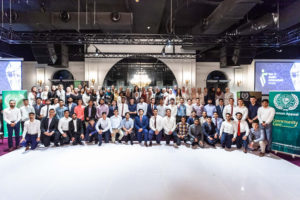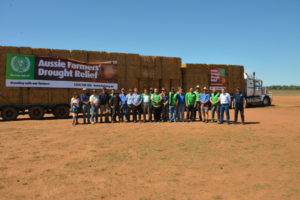The NSW and federal governments have been accused of hatching coercive and draconian security powers in an “atmosphere of hysteria” as unease grows over Australia’s anti-terrorism response.
Sydney’s besieged Muslim community joined the emerging backlash to warn that ASIO’s proposed powers of detention and interrogation would virtually transform the agency into a “secret police”.
The state’s legal fraternity, led by the Australian president of the International Commission of Jurists, John Dowd, also condemned the anti-terrorism measures, saying they eroded citizens’ fundamental rights and gave encouragement to oppressive overseas regimes.
But the NSW Premier, Bob Carr, said Bali had proved the threat to civilian lives was real and enhanced police powers to arrest, question and search people was necessary.
“We had the slaughter of innocent Australians in Bali,” Mr Carr said. “We’ve had warnings that Australia might be targeted. We are giving police a carefully defined power to be triggered only on the occasion of an emergency. So John wake up to yourself. The threat is real.”
NSW and federal government bills giving police and ASIO agents greater powers of search, interrogation and detention will be debated in the two parliaments next week.
Almost all the 404 submissions to a Senate inquiry into the new ASIO legislation oppose the provisions, said its chairman, the ALP’s Nick Bolkus.
The Association of Criminal Defence Lawyers, Australian Lawyers for Human Rights and the Law Council of Australia have objected to Canberra’s plans to detain people of interest – but not suspects – for questioning for up to seven days. People of interest may be held without being charged, legal representation or a court appearance.
In evidence to the inquiry, Justice Dowd said Australians’ fundamental rights were under attack from anti-terrorism bills in an “atmosphere of hysteria”. Muslims stood to become the first victims of the new laws.
The anti-terrorist measures would be likely to be used as an excuse by dictators of Asian and Pacific nations for their own human rights violations, he said.
“Our credibility is blown,” he said. “What we have done will be used by terrorist regimes and totalitarian regimes throughout the world. This is not what Australia is about. We developed our legal system on habeas corpus and a whole range of protections of the individual. This just throws it aside.”
The Law Council of Australia spokesman, Bret Walker, SC, said the ASIO bill violated basic rights in the same way as the United States has been unlawfully detaining suspected Taliban fighters, including two Australians, in Guantanamo Bay.
The bill would not prevent ASIO from rearresting suspects after the seven days expired and from using its interrogation powers unlawfully, he said. The Australian Crime Commission, rather than ASIO and the Australian Federal Police, was more suited to having coercive powers of questioning.
The Australian Federation of Islamic Council’s chief executive, Amjad Mehboob, said Australia must not go down the path of having a secret police force.
And senior research fellow at the University of NSW, Mohammed Kadous, said recent ASIO raids proved the agency already had sufficient powers. “With legislation like this, how could we say anything about Malaysia’s International Security Act?” he said.
Terrorism Laws Branded Anti-Muslim
http://www.abc.net.au/news/2002/11/item20021127000408_1.htm
Nov 27 2002 – The Federal Government’s plans to give the Australian Security Intelligence Organisation (ASIO) extra powers to combat terrorism have been roundly criticised on the final day of a Senate Committee’s public hearing yesterday.
The Islamic Federation’s Amjad Mehboob says Australian Muslims would be the first victims of the new laws.
“Australia must not go down the path of having a secret police force, where individuals, including children, can be detained without being charged and without legal representation or the knowledge of their family members on the basis of mere suspicion that they may have some information,” he said.
The International Commission of Jurists has warned that anti-terrorist laws are being devised in an atmosphere of hysteria.
New South Wales Supreme Court Justice John Dowd says rights fundamental to the Australian society are being taken away during the current hysterical climate.
Justice Dowd particularly criticised the Terrorism Police Powers Bill proposed for New South Wales, claiming the law will target Australian Muslims.
“Since we don’t have rampant Baptists and Anglicans out there attacking us in the streets, it is patently clear that this is aimed at Muslims,” he said.
“It is a thinly veiled weapon that is causing a great deal of concern amongst a lot of loyal Muslim Australians.”
Earlier, the Association of Criminal Defence Lawyers (ACDL) said it is most concerned about the plan to detain people for up to 48-hours without a lawyer, and the possibility of rolling over the detention for up to a week.
ACDL spokesman Phillip Boulton says the principles of Australia’s criminal justice system do not tolerate preventative detention.
“If there is to be detention for questioning then there ought to be in the act, strict time limits specified,” he said.
“It should be known in advance for how long the person is likely to be held for questioning.”






